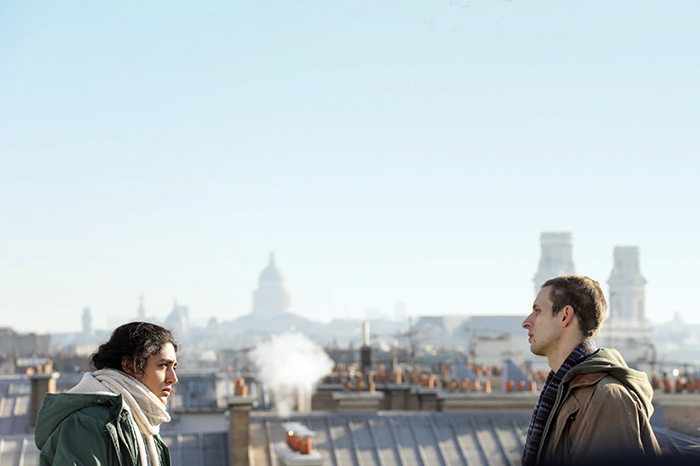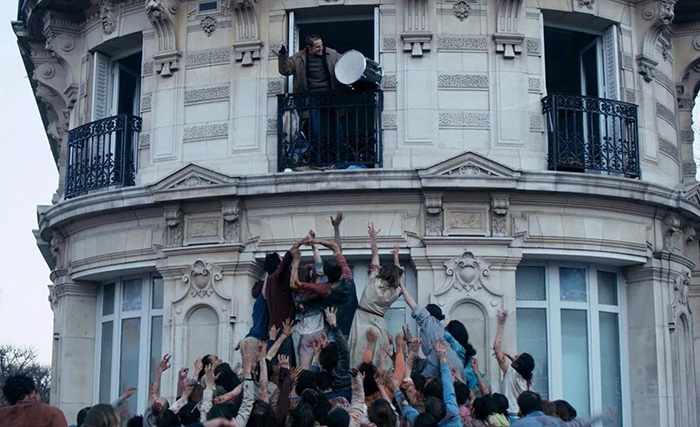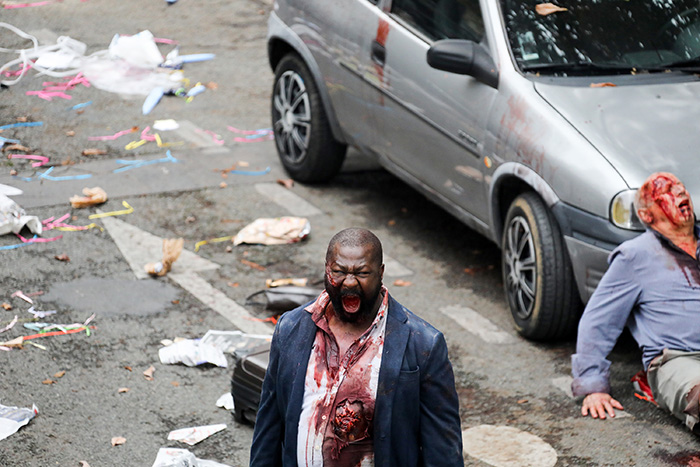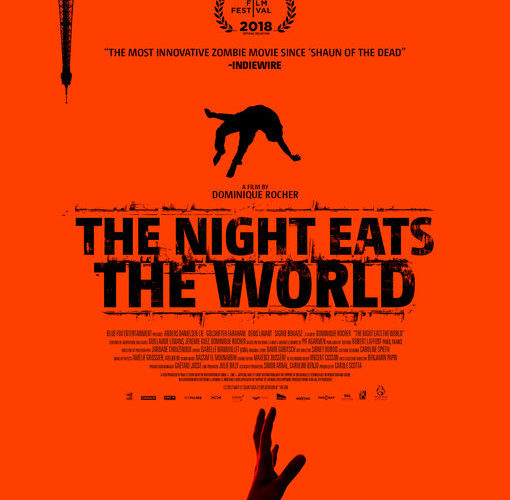Who would survive a zombie apocalypse? The extroverts who’re always part of a crowd, oblivious to the dire circumstances of their surroundings and therefore unable to escape the clutches of an oncoming horde mere inches away before recognition? No. Nor should they. When you think about the type of person you’re taught to become in order to live fulfilling lives, the image conjured is one of humanity and compassion. They’re the ones meant to exist in a world of increasing populations and melting pots of culture. They’re the ones willing to bridge language barriers and lend charitable assistance to expand an altruistic reach. But in a world ravaged by the undead, the last thing you want to do is lend a hand. Antisocial avoidance suddenly becomes salvation.
While characters like Jim in 28 Days Later or Rick Grimes in The Walking Dead find themselves unscathed in their unfamiliar environments specifically because of hospital quarantine, they seek community. In their minds safety comes with numbers and the desire to live with love. I’m not saying they are wrong, only that they are working towards the reclamation of a world they may never see again. Rather than adapt to reality, they look to rebuild in contrast to it. This is a commendable stance, but also one that ensures greater emotional pain when the futility of their situation inevitably opens the floodgates of carnage. Their stories want us to see humanity tested in order to experience the myriad ways we can bend, break, and bounce back.

And that’s why Dominique Rocher’s vision of this horror scenario feels so refreshing. Based on Pit Agarmen’s novel (the genre pseudonym of author Martin Page), The Night Eats the World gazes upon what’s left of society through a lens of pragmatism. It acknowledges that humanity is barely beating back its own extinction, that survivors are the minority and therefore minutes from oblivion if they cannot adapt. So the answer to my first question proves to be the introverts. The men and women over-stimulated by a raging house party who gravitate towards a quiet room to escape the chaos. They seek calm isolation—order in a sea of unpredictability. They’ll create routine within extraordinary circumstances, their self-sufficient detachment finally proving to be advantageous.
Just because this person has the tools to stay alive, however, doesn’t mean his “life” will retain its current form. To adapt is to adjust and adapting to a zombie-filled world is to become like them whether you still breath or not. So don’t walk into Rocher’s film with a Hollywood horror mindset. This is not an action-packed gore-fest hiding scares around every corner. It only uses its genre for the situational rules it dictates to anyone caught within them. Rather than be about how Sam (Anders Danielsen Lie) gets out of his predicament (waking up alone in someone else’s apartment building to find blood on the walls and rabid monsters lurching to rip him apart), The Night Eats the World portrays how he remains entrenched within it.

What then is life? Is it breathing and eating to keep our physical selves moving or is it the emotional and psychological attachments we build to stay sharp, engaged, and sane? Is it better to search for companionship and die along the way or remain in one place, scavenging for provisions without a threat of danger from anyone but yourself? Suddenly this high concept scenario becomes a metaphor for Sam’s existence before the outbreak. Just like he retreated from the difficulties of life in a big city surrounded by people seeking a connection, he holes up indoors to avoid those same people now transformed into creatures desperate to consume him. On the surface these two situations are very different. But to Sam they’re exactly the same.
Whereas the people in their former life dismissed him as the zombie sleepwalking through life, they are now the automatons devoid of anything beyond their singular purpose to feed. Even so, he remains the outlier. He’s still the one fighting against conformity, going room to room to procure non-perishable food and avoid any of the undead still inside their apartments. He spends his time making music no one else will ever hear, shooting walkers outside with a paintball gun to pretend to exercise his mind, and talking to a former resident locked behind the elevator’s wrought iron door with arm extended in a perpetual need for flesh (Denis Lavant). And as days become months, you have to start wondering who has it better? Whose prison is more enticing?

The result is a slow-moving piece without dialogue for large swaths of time. Rocher and company actually shot the movie in English and French, alternating the few takes that do possess words to have two versions ready for international consumption. We’re therefore put inside Sam’s head to experience his isolation; surprising willingness to decapitate men, women, and children who pose a threat; and devolving sense of self beyond food, music, exercise, and sleep. And just as his grasp on reality appears to be hanging by a single thread, he both unwittingly (or not) ignites a series of events that will ensure his self-destruction and discovers he might not be alone. What’s more: the latter’s possibility has him wondering for the first time ever whether he wishes he weren’t.
Sarah (Golshifteh Farahani) provides a voice outside his own, but only a glimmer of hope for the present rather than future. Sam is still the person he’s always been, still the loner trying to extricate himself from a party to enjoy the silence of home. But how much of that enjoyment stems from knowing people exist? That he’s choosing to be alone only until deciding enough is enough? Having that safety net of comfort is different than living every second of every day with paranoia and fear. Sustaining life with a mindless sounding board who’d eat you alive if given the chance is different than living it with people who care regardless of your letting them in. Only at the edge of emptiness can Sam realize the difference.
The Night Eats the World is now playing the Fantasia International Film Festival in Canada and is currently available in limited release and VOD in the United States.

